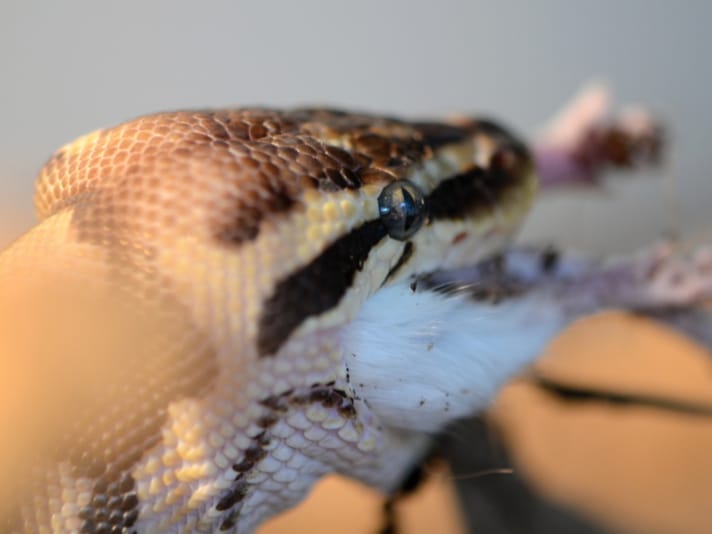I moved my ball python snake into a new terrarium and now he is not eating. What is wrong with him?
Q. I have a ball python. He was in a 20-gallon-long terrarium, and I put him into a new 40-gallon breeder. He has not eaten in a few months. I tried live and dead rats and mice. He sniffs at the rodent and continues about his business. He is now in a bigger home and has been for a few weeks. I don't know what else to do. He drinks water daily. He is very tame and looks like he’s lost a little weight. What options do I have?
A. When you moved your ball python into the new habitat, did you provide upgraded heating to go along with the new digs?
My first concern is that maybe now the snake is too cold, if it has the same heating equipment now that it is in a tank that is twice as large. Do you have thermometers/hygrometers in the new tank? If so, the temperature range should be from 77 to 86 degrees Fahrenheit, with a relative humidity of 70 to 80 percent.
I assume that you have provided appropriate hide boxes and shelters and that you are handling your snake no more or less than before? Are you offering rodents from the same supplier and are you giving the snake the same types as before? By this, I mean that you are not now giving it white mice when before you were offering brown mice? If all of that is consistent, and the ambient temperature hasn’t dropped, then I would recommend that you take the ball python in for an evaluation by a qualified herp veterinarian. Not feeding for an extended period of time is called anorexia, and it is just a symptom of something going on and not a primary disease itself.
Adult ball pythons often go off feed during the winter breeding season. This is another reason why your snake may have stopped eating.
Don’t handle your snake until you get it feeding again and try some of the techniques I discuss in the archived question.
I hope this helps. Please consider taking your snake in for a thorough checkup and testing, especially since you think it has lost weight. It might be a good idea to get a good quality scale that weighs in grams, and start charting its weight weekly. This is a good idea for all herpers, as subtle changes in their weight can warn you of a potential problem.
Margaret A. Wissman, DVM, DABVP has been an avian/exotic/herp animal veterinarian since 1981. She is a regular contributor to REPTILES magazine.
Need a Herp Vet?
If you are looking for a herp-knowledgeable veterinarian in your area, a good place to start is by checking the list of members on the Association of Reptilian and Amphibian Veterinarian (ARAV) web site at www.arav.com. Look for DVMs who appear to maintain actual veterinary offices that you could contact.


